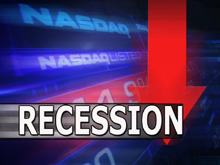 by IBD Editorials –
by IBD Editorials –
Success: Away from the low growth and high regulation of an America under Washington’s thumb, our northern neighbor is economically strong. As 2011 ends, Canada has announced yet another tax cut — and will soar even more.
The Obama administration and its economic czars have flailed about for years, baffled about how to get the U.S. economy growing.
In reality, the president need look no further than our neighbor, Canada, whose solid growth is the product of tax cuts, fiscal discipline, free trade, and energy development. That’s made Canada a roaring puma nation, while its supposedly more powerful southern neighbor stands on the outside looking in. [Read more…]

 by Ryan Ellis –
by Ryan Ellis –

